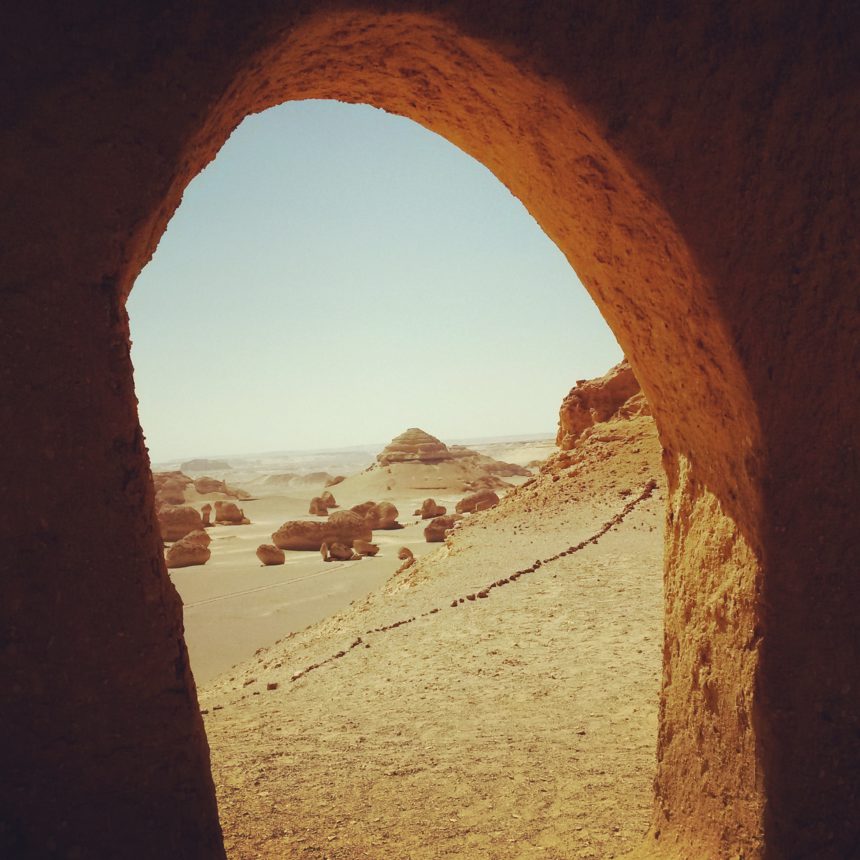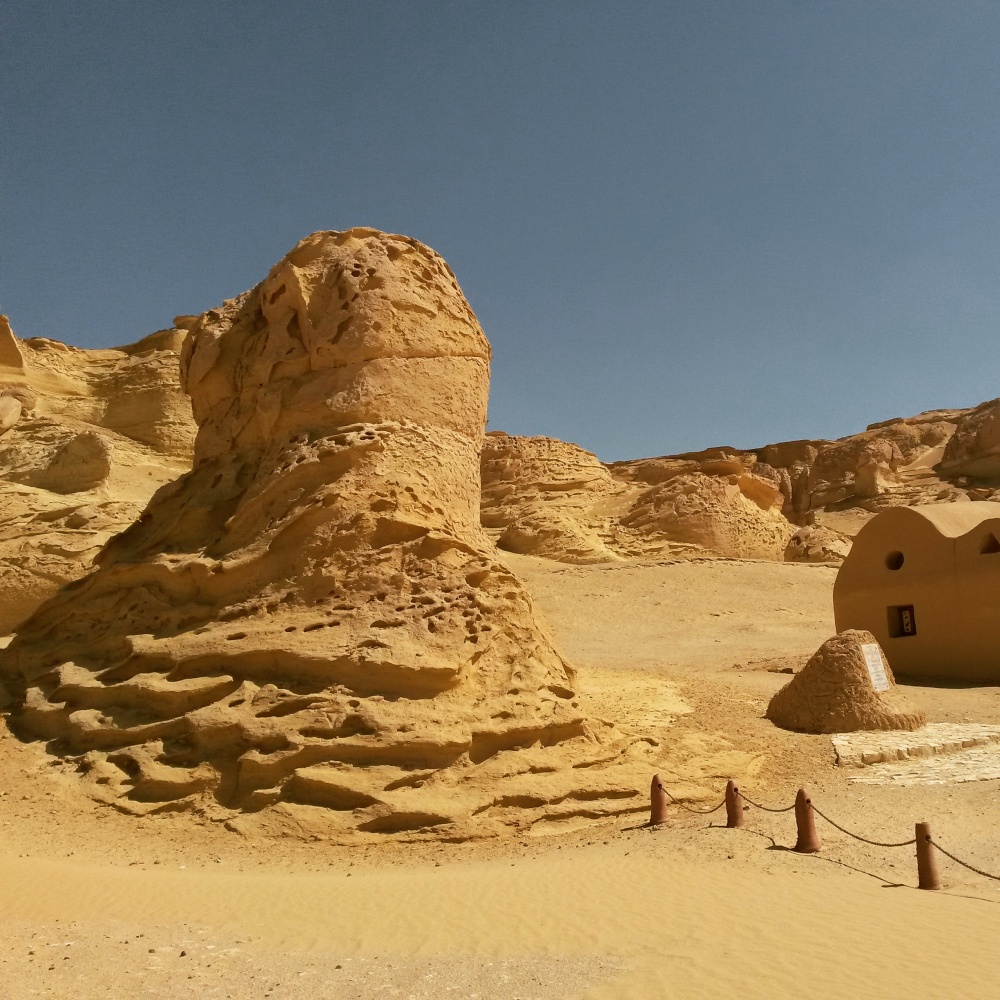Hidden at the heart of the Sahara desert in Egypt, rare fossils of ancient whales uncover the history of Wadi Al-Hitan, a remote valley located 150 kilometers southwest of Cairo. Also known as the Valley of Whales, the site offers a unique opportunity to embark on a journey through the history of evolution.
The valley is located within the boundaries of the Wadi El-Rayan Protected Area, about 80 kilometers from Fayoum City, which boasts two majestic lakes and Egypt’s only waterfalls.
Wadi Al-Hitan was declared as a World Heritage site by UNESCO in 2005, acting as an open-air geological museum which continues to reveal scientific discoveries still today.
The secret behind the curvy seemingly-carved shape of the rocks is that the basin was once submerged under water 40 million years ago, when the Tethys Sea extended towards the Mediterranean. The different sediments in the rock can still be seen today, as water and wind painted their traces across the land.
According to scientists, the Tethys Sea retreated north and over the years deposited thick sediments of sandstone and limestone, now visible in rock formations in Wadi Hitan.
Today, the area counts with numerous excavation sites of whales, sharks, petrified mangrove bushes, and several other remnants of the prehistoric sea. The site contains over 390 known whale skeletons of five different varieties.
The curves, the shades and the colors of buildings in Fayoum only add to the unique atmosphere that reigns over the valley.
 The lakes located in Wadi El Rayan offer a breathtaking symphony of colors, only interrupted by the soothing stream of the two waterfalls located between the two lakes.
The lakes located in Wadi El Rayan offer a breathtaking symphony of colors, only interrupted by the soothing stream of the two waterfalls located between the two lakes.
 The way to the Fayoum Oasis and Wadi el Rayan is a colorful ride with Egypt’s bedouin tribes, whose delicate decorations (even inside de car), cheerful music, and delicious tea adds a fascinating flavour to the visit.
The way to the Fayoum Oasis and Wadi el Rayan is a colorful ride with Egypt’s bedouin tribes, whose delicate decorations (even inside de car), cheerful music, and delicious tea adds a fascinating flavour to the visit.
This article was originally published in Barakabits in March 2015.









Leave a Reply